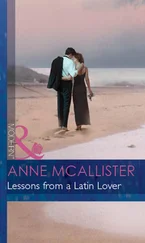James Watson - AVOID BORING PEOPLE - Lessons from a Life in Science
Здесь есть возможность читать онлайн «James Watson - AVOID BORING PEOPLE - Lessons from a Life in Science» весь текст электронной книги совершенно бесплатно (целиком полную версию без сокращений). В некоторых случаях можно слушать аудио, скачать через торрент в формате fb2 и присутствует краткое содержание. Жанр: Биографии и Мемуары. Описание произведения, (предисловие) а так же отзывы посетителей доступны на портале библиотеки ЛибКат.
- Название:AVOID BORING PEOPLE: Lessons from a Life in Science
- Автор:
- Жанр:
- Год:неизвестен
- ISBN:нет данных
- Рейтинг книги:5 / 5. Голосов: 1
-
Избранное:Добавить в избранное
- Отзывы:
-
Ваша оценка:
- 100
- 1
- 2
- 3
- 4
- 5
AVOID BORING PEOPLE: Lessons from a Life in Science: краткое содержание, описание и аннотация
Предлагаем к чтению аннотацию, описание, краткое содержание или предисловие (зависит от того, что написал сам автор книги «AVOID BORING PEOPLE: Lessons from a Life in Science»). Если вы не нашли необходимую информацию о книге — напишите в комментариях, мы постараемся отыскать её.
AVOID BORING PEOPLE: Lessons from a Life in Science — читать онлайн бесплатно полную книгу (весь текст) целиком
Ниже представлен текст книги, разбитый по страницам. Система сохранения места последней прочитанной страницы, позволяет с удобством читать онлайн бесплатно книгу «AVOID BORING PEOPLE: Lessons from a Life in Science», без необходимости каждый раз заново искать на чём Вы остановились. Поставьте закладку, и сможете в любой момент перейти на страницу, на которой закончили чтение.
Интервал:
Закладка:
Going back home, I felt stupidly unable to fight back against his word war, even while suspecting that he was pulling a fast one that I was too dumb to spot. Later when we both went to the University of Chicago, he came up against much better practitioners of semantics and logic. Soon Bill sheepishly confessed to me that syllogisms no longer led him to God, and freed from thinking about sin, he developed a new preoccupation with girls—and more girls.
2. Knowing “why” (an idea) is more important
than learning “what” (a fact)
World Almanac facts, such as the relative heights of mountains or the names of British kings, got you nowhere at Hutchins's college. The essence of its educational mission was the propagation and dissection of ideas, not the teaching of facts often best left to trade schools. Why the Roman Empire had risen and fallen was much more important than the birth date of Julius Caesar. And why the great European cathedrals were built mattered much more than their relative sizes. Equally unimportant were the details about the French Revolution when contrasted to the philosophical ideas of its eighteenth-century Enlightenment, whose emphasis on reason as opposed to theological revelation greatly accelerated the development of modern science. Likewise, details of Linnean taxonomy paled in significance to the idea of biological evolution, whereby all life-forms have a common ancestor. Better simply to know which books hold details you will need than to overload your neurons with facts that later will never need to be retrieved.
3. New ideas usually need new facts
Though facts are inherently less satisfying than the conclusions drawn from them, their importance cannot be denied. Darwin's abandonment of the Bible's description of the origin of life came out of the observations that he made as a naturalist aboard the HMS Beagle. During its three-year mission of charting poorly known stretches of the western coastline of South America, Darwin spent much time ashore observing and collecting the fauna, flora, and fossils. He noticed among other things that species found in mountainous temperate regions were more similar to those found in nearby tropical regions than they were to species from temperate regions on other continents. Likewise, many South American fossils appeared more related to living South American equivalents than to fossils found, say, in Europe. Crucial to his own acceptance of the origin of species by natural selection was his visit to the Galapagos Archipelago, where each island had its own unique species of finches. Effectively isolated from interbreeding with finches of neighboring islands, each species evolved its own unique coloration and beak shape. Sometimes a new idea can flow from old facts rearranged, but more typically it comes when new things previously unknown and unaccountable for under the old theory are introduced.
4. Think like your teachers
Learning to think should also make your life easier. During my first university years, I crammed far too much for exams, trying to be on top of all the topics given even semiprominence in my syllabi or texts. It would have been much better to focus on questions my teachers were certain to ask, which I could discern if I paid attention to their main take-home lessons. Trying to put myself into my instructor's head became much easier when I began to concentrate on subjects of personal interest, and I proved a whiz while a senior at mastering the ideas of ecological animal geography.
5. Pursue courses where you get top grades
After you've satisfied requirements, choose courses that naturally interest you, not ones someone else thinks you should care about. Then give these courses your all. If your grades in classes you like are not largely As, you have likely not yet found your intellectual calling. As a corollary: if you do take courses that prove to be no fun, don't get upset by less than stellar grades.
6. Seek out bright as opposed to popular friends
Though big-time sports were gone, the University of Chicago still had fraternities that acted as dining and housing centers for students with social aspirations after the war ended. Only one such meal in a house on University Avenue made it obvious to all that I'd better plan to continue dining at the Hutchinson Commons with several undergraduate science oddballs who, like me, could not generate polite words of no purpose. There we could frequently look across its long refectory tables and see Enrico Fermi talking with his graduate students and postdocs. The great Italian-born physicist had elected to be there instead of dining with fellow physics professors in the more stuffy Quadrangle Club. In my senior year, I began moving among zoology department graduate students. With them small talk came easily. I didn't feel like an oddball, as I did among students of other aspirations who were soon to move off into worlds of which I had no interest in ever becoming a part.
7. Have teachers who like you intellectually
Long after I left Chicago, a gathering of its New York alumni brought me into contact with a classmate whom I remembered best for his devotion to bridge games. Cheerfully he told me how, given my social awkwardness, none of my classmates thought I would amount to much. Happily it was my teachers’ opinion, not my classmates', that mattered. After fun classes I liked to stay on to ask questions, and in this way I became well known to them. Because of my enthusiasm, during my senior year the animal behaviorist Clyde Allee invited me to join the weekly meeting of his students at his nearby Hyde Park house. He not only gave me an A but also wrote a compelling recommendation for my application to graduate school. The most effective endorsements are cultivated well before application time. So it was with the human geneticist Herluf Strandskov, who would also praise my keen interest in biology. You don't have to win them all: the impervious embryologist Paul Weiss was ever annoyed at my failure to take notes during his lectures while still getting A's in his exams. I had the sense not to ask him for a recommendation.
8. Narrow down your intellectual (career) objectives while still in college
The University of Chicago was virtually an officers’ training school for intellectuals, and its Zoology Department had no rival in range elsewhere in the United States. Though initially excited by virtually all aspects of biology, by late in my junior year I found myself keenly interested in the gene. If I had not figured out my focus so early, I very likely would have gone to a school such as Cornell or Berkeley that had great programs in biology but not in genetics. In such circumstances I might have grown bored with my thesis research and been obliged to wait until after my Ph.D. was completed, some three or four years, before experiencing true intellectual excitement. And by then I would have left the most thrilling problem of all—the DNA structure—for others to solve.
3. MANNERS PICKED UP IN GRADUATE SCHOOL
INDIANA University (IU), at Bloomington in Monroe County, to which I went in September 1947 to become a scientist was waking up from a genteel past that made it still more redolent of a southern state university than the other earnestly progressive Big Ten partners such as Wisconsin and Michigan. Presiding over the emergence of IU as an institution where learning and research were to be as important as weekends of fraternity- and sorority-led fun was Herman B. Wells. He became president in 1937, when he was only thirty-five. Short and heavyset, the Indiana-born small-town boy had prodigious energy and visions of greatness for his university, until then the academic runt of the Big Ten.
Читать дальшеИнтервал:
Закладка:
Похожие книги на «AVOID BORING PEOPLE: Lessons from a Life in Science»
Представляем Вашему вниманию похожие книги на «AVOID BORING PEOPLE: Lessons from a Life in Science» списком для выбора. Мы отобрали схожую по названию и смыслу литературу в надежде предоставить читателям больше вариантов отыскать новые, интересные, ещё непрочитанные произведения.
Обсуждение, отзывы о книге «AVOID BORING PEOPLE: Lessons from a Life in Science» и просто собственные мнения читателей. Оставьте ваши комментарии, напишите, что Вы думаете о произведении, его смысле или главных героях. Укажите что конкретно понравилось, а что нет, и почему Вы так считаете.












